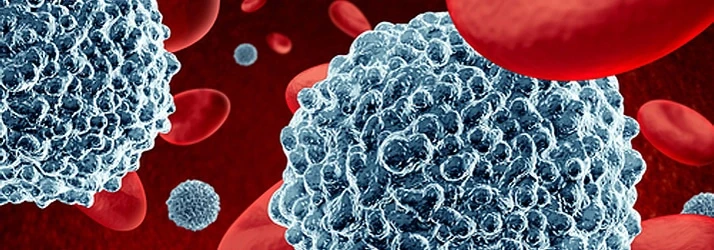Tuesday's Q&A in Lafayette LA - 9/23/14

For this week's Q&A Tuesday in Lafayette LA, I have to admit, I've been sneezing. The weather is beginning to change - which means cooler temperatures here in Southern Louisiana, but also the inevitable allergy attacks that climate changes often bring on. Which has me thinking… as a child I was allergic to every food in sight and had tried just about every medication under the sun - and the most sensitive times of year for me would be when the weather changed. What if I told you it was VERY possible to set yourself up for success for not only seasonal allergies but food allergies as well?
Did you know that 80% of your immune system is in your gut?!
And that your nervous system (brain and spinal cord) controls your immune system?! Your gut bacteria, therefore, not only influences your immune responses & nervous system functioning, but also plays a role in the development of any number of diseases, including seasonal and food allergies.
Seems like EVERYONE is allergic to something these days…
Food allergies affect some 15 million Americans, including one in 13 children. Disturbing statistics also point out that potentially deadly food allergies are on the rise. For example, between 1997 and 2011 alone, food allergies in children rose by 50 percent!
Dr. Joseph Mercola says that, "in one study 10 percent of children raised in large cities developed a food allergy before the age of five. Twenty-nine percent developed food sensitivity. The most common food allergy was peanuts (6 percent), followed by eggs (4.3 percent), and pasteurized milk (2.7 percent). According to British researchers exposure to antibiotics early in life may increase your child's risk of developing eczema by 40 percent. Other scientists have clearly shown how genetically engineered foods and the use of the agricultural herbicide glyphosate destroys gut bacteria and promotes allergies. One recent study adds further credence to the disturbed immune system hypothesis."
Certain Gut Bacteria Protect Against Food Allergies
The study which used mice, found that a common gut bacteria called Clostridia helps prevent sensitization to food allergens. In fact, immune responses to food allergens were reversed once Clostridia bacteria were put back into the mice. Another common type of gut bacteria, Bacteroides, did not have this effect, suggesting Clostridia may have a unique role in this regard.
Using genetic analysis, the researchers determined that Clostridia instructs immune cells to produce a signaling molecule called interleukin-22 (IL-22), which is known to reduce the permeability of the lining in your intestines. In other words, it helps prevent leaky gut syndrome-a condition that allows allergens to enter your bloodstream, thereby producing an immune response, as reported by HealthCanal.com. Another researcher says, "by inducing immune responses that prevent food allergens from entering the bloodstream, Clostridia minimize allergen exposure and prevent sensitization - a key step in the development of food allergies… environmental stimuli such as antibiotic overuse, high fat diets, caesarean birth, removal of common pathogens and even formula feeding have affected us and our results suggest this could contribute to the increasing susceptibility to food allergies," said study senior author Cathryn Nagler, PhD, Bunning Food Allergy Professor at the University of Chicago.
The best way to optimize Clostridia in the gut? Take a "comprehensive" lactobacillus/bifdobacterium complex. (Dr. Marino is happy to can teach you why no two pro-biotics are alike and which brands she recommends).
REMEMBER 80% of your immune system lies within your GUT!
The foundation of a strong immune system starts with an "optimal" gut environment - the first way to do this is through your diet. First, you'll want to make sure to avoid:
- Grains and sugar - as they promote the growth of pathogenic yeast and other fungi. Grains containing gluten are particularly damaging to your "good-gut-bacteria" and overall health
- Genetically engineered foods - as they contain some of the highest amounts of glyphosate. This agricultural herbicide has been found to preferentially attack beneficial bacteria
- Processed and pasteurized foods - which harm your good bacteria
- Conventionally-raised meats and other animal products - CAFO animals are routinely fed low-dose antibiotics and genetically engineered livestock feed
- Chlorinated tap water - as chlorine kills not only pathogenic bacteria in the water but also beneficial bacteria in your gut
A gut-healthy diet is one rich in whole, unprocessed, unsweetened foods, along with traditionally fermented or cultured foods. Fermented foods are also a key component of the GAPS protocol, a diet designed by Dr. McBride (a Russian neurologist) to heal and seal your gut. It sounds strange, eating sauerkraut as a side dish right? But start with a small goal with just a teaspoon or two a few times a day, and increase as tolerated. If that is too much (perhaps your body is severely compromised), you can even begin by drinking a teaspoon of the brine from the fermented veggies, which is rich in the same beneficial microbes.
Don't Forget About the Other Environmental Factors That Affect You:
Besides a poor diet, your immune system is also affected by a variety of environmental factors and lifestyle choices, for better or worse. Some of the factors posing the gravest threat to your immune system include:
| Antibiotics(use only if absolutely necessary, and make sure to reseed your gut with fermented foods and/or a good probiotic supplement) | NSAIDs(Nonsteroidal anti-inflammatory drugs) damage cell membranes and disrupt energy production by mitochondria) | Proton pump-inhibitors(drugs that block the production of acid in your stomach, typically prescribed for GERD, such as Prilosec, Prevacid, and Nexium) |
| Alcohol Consumption | Stress | Pollution |
As noted in a recent BBC News report, lack of exposure to the outdoors can in and of itself cause your immune system to become "deficient." After tracking the whereabouts of two families for 24 hours, researchers found the family members spent on average 91 percent of their time indoors. This trend may in fact be one of the driving factors behind rising allergy statistics in the modern world-in short; we're underexposed to beneficial bacteria that human beings used to get from the earth itself. According to the BBC:
"Arguably, the easiest thing for all of us to do to reduce our chances of becoming allergic is to go outside. Whether it is walking the dog or strolling to school, the evidence suggests that being outside and taking a good deep breath of fresh air is good for you."
Your Nervous System Controls Your Immune System (bring on the SCIENCE!)
Neuro-endocrine-immunology is also referred to in scientific literature as psychoneuroimmunology. The cells of the immune system and endocrine system communicate directly with the central nervous system (brain and spinal cord) via a nerve and the bloodstream. There are two main pathways that connect the brain and the immune system, namely the autonomic nervous system, (made up of the sympathetic and parasympathetic components), and the hypothalamic-pituitary-adrenal-axis (HPA). In order for the two systems to influence one another, they must have a mechanism by which to communicate: their main form of communication is through chemical messengers which are released by nerve cells, endocrine organs and immune cells. Also, the immune system is composed of lymphoid tissues, and the fact that these tissues are innervated with sympathetic nerve fibers adds support to the evidence that the central nervous system directly influences immune function.
In summary, the immune system, like every other system in the body, is coordinated and controlled by the nervous system. Specific immune organs including the spleen, thymus, and lymph nodes which are all in communication with the master control - the brain - by nerves which connect them. Picture a telephone wire - during an immune response, the brain and the immune system "talk to each other" and coordinate the body's response to the exposure. This process is essential for maintaining homeostasis: your body's "happy place." Basically: if the nervous system is not functioning properly, then the immune system cannot function properly.
An Optimal Functioning Nervous System = A Strong, Healthy Immune System
Most people are aware of the benefits of chiropractic care for back and neck pain, but a lesser known advantage of chiropractic treatment is improving immune function. Chiropractic care specifically corrects spinal misalignments.These misalignments of the bony spine can put pressure onthe spinal cordand nerves which exit at each level of the spine. This can cause stress and interference of the nervous system. Simply put, whatever message that is trying to be sent from the brain and out to the body does not get sent properly - picture yourself "stepping on a garden hose" - how can you water the flowers if the water doesn't leave the hose? Chiropractic adjustments correct the spinal misalignments that place stress on the nervous system and allowing brain body connection to be restored.
Along with correcting spinal misalignments and allowing for a stress free nervous system, an actual chiropractic adjustment causes an immediate immune boost. A study found that disease fighting white blood cell counts were significantly higher just 15 minutes after chiropractic adjustment. Another study found that increased levels of certain antibodies appear in the bloodstream up to 2 hours after an adjustment which suggests a priming effect of the immune system and a possible faster response to a new infection.
Dr. Marino is the Clinic Director at LeBlanc Spine and Nerve and the only pediatric certified chiropractor in the state of Louisiana. Most of her "allergic" childhood was either spent indoors or in-and-out of hospitals and on medication. Her healthcare mission: to see children be more of what they should be: Happy AND Healthy.
This week's recipe:
EASY, YUMMY, LEMON ROASTED CHICKEN
Ingredients:
- 1-Whole Chicken, organic when possible
- ½ c. Fresh Rosemary, chopped
- (OR, ¼ c. dried rosemary - but use less if rosemary is ground)
- ½ tsp. Pepper
- 1 stick of Salted Organic Butter
- 1 large or 2 small Onions, chopped in chunks
- ½ cup filtered water
Recipe Instructions:
Preheat oven to 400. Soften butter to room temp. Zest 2 lemons and chop all but 1 tblsp. rosemary. Make compound butter by adding zest, rosemary & pepper to the softened butter. Next, remove the organs and the neck of the chicken and wash the chicken in cool salted water, then place in a pan or baking dish & pat dry. Slather the chicken with the compound butter very WELL. Slice lemons in half and juice them over the chicken & then take the lemon halves and stuff them in the cavity of the chicken with the remaining rosemary. Place the onions around the chicken and some in the cavity. Pour the water in the pain and roast for approx. 20 min/pound. Before removing from oven, insert a meat thermometer into the thickest part - temp should reach 170 degrees. Let rest 10 minutes and enjoy!
OFFICE HOURS
Monday
8:30am - 5:30pm
Tuesday
8:30am - 5:30pm
Wednesday
Closed
Thursday
8:30am - 5:30pm
Friday
7:30am - 11:30am
Saturday & Sunday
Closed
Open for Massage & Treatment
During Business Hours
Modern Chiropractic
318 Bertrand Dr #101
Lafayette, LA 70506



